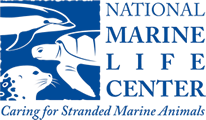Help keep the lights on for turtles like Jedi!
 As the days get chillier and night falls earlier, I am writing this post about an often unsung but critically important animal care expense. Electricity.
As the days get chillier and night falls earlier, I am writing this post about an often unsung but critically important animal care expense. Electricity.
When you think of saving a sick or injured sea turtle or seal, electricity may not be the first thing on your mind. You’d consider the cost of medicine, food, diagnostic tests, husbandry supplies, or professional veterinary care first. And those are essential. But I must tell you, we could not save a single sea turtle or seal without electricity.
Did you know that every month, the National Marine Life Center spends an average $2,273 on electricity? It keeps the lights on during late night pup feeds, keeps the pumps running on our salt water rehabilitation pools, and powers necessary medical and diagnostic equipment.
Would you consider a gift today to help us pay for electricity for the next year? To help, an anonymous donor has told us they’d match your donations up to $10,000. That means that your donation today will be worth twice as much!
Without electricity, we couldn’t have run the equipment that saved the life of a small turtle we call “Jedi.”
Jedi is an endangered Kemp’s ridley turtle, currently in our care. He was admitted to our wildlife hospital last December suffering from “cold-stunning,” a severe form of hypothermia. He was emaciated and lethargic.
Jedi initially made good progress. He swam strongly, ate well, and began gaining weight. He preferred herring fillets, but would also eat squid rings in a pinch!
 But suddenly, after about a month and a half of rehabilitation, he lost all interest in food. He no longer swam, but floated listlessly on the surface of the pool. He became quiet and non-responsive.
But suddenly, after about a month and a half of rehabilitation, he lost all interest in food. He no longer swam, but floated listlessly on the surface of the pool. He became quiet and non-responsive.
A veterinary examination and x-rays showed that Jedi had “osteolytic syndrome.” It’s a bone disease that sometimes occurs in sea turtles that have been cold-stunned.
All four of Jedi’s flippers were swollen and painful. Jedi was put on antibiotics and anti-inflammatories, but he continued to go downhill. He completely stopped eating and swimming. We thought we were going to lose him! But electricity came to the rescue!
To help Jedi rest and regain his strength, animal care staff began putting him in our incubator – a climate controlled veterinary intensive care unit – overnight. A floating pad in the rehabilitation pool during the day allowed Jedi to rest between swims.
 Jedi spent almost two months healing in the incubator. During this time, animal care staff carefully ground up fish, adding vitamins and fluids, and tube fed Jedi to help him regain his strength. Gradually he started to improve.
Jedi spent almost two months healing in the incubator. During this time, animal care staff carefully ground up fish, adding vitamins and fluids, and tube fed Jedi to help him regain his strength. Gradually he started to improve.
Now, almost a year after stranding, Jedi is once again eating and swimming on his own. Recent x-rays show his bones are healing. If he continues to improve, he will be able to be released back to the wild soon.
Will you help Jedi and the other animals we care for every day by keeping the lights on, the pool pumps flowing, and the incubator running? Please, donate today. Just $19 buys six hours of electricity. $75 pays for a full day, and $525 pays for a week.
For animals like Jedi, every hour, every day, every week makes a difference.
We’d like to raise $20,000 to help pay for next year’s electricity bills. An anonymous donor has stepped up and given us a challenge. They will match your donation up to $10,000!
This means that your gift will be worth twice as much. Click here to make your secure online donation today.
On behalf of Jedi and the other turtles and seals in our care, thank you for helping.
